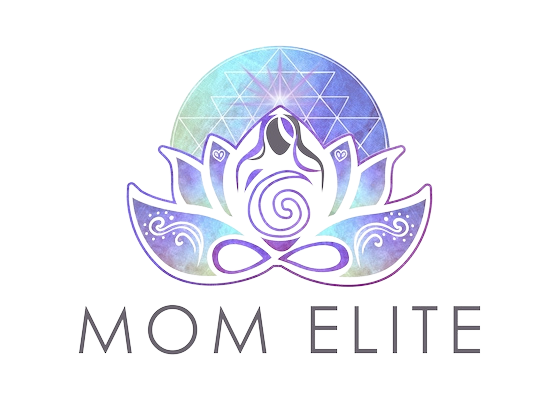Do you struggle with finding the right skincare for your skin? Everyone’s skin is different, and knowing how best to care for your skin can help you make sure you are looking and feeling your best every day.
What we eat, how we live our lives, and all of our choices will affect our skin, especially the skin on your face, so paying attention to things such as diet, hydration, and exercise will all play a part in keeping your skin looking and feeling healthy. At a minimum, healthy habits that can improve your skin include;
- A good sleep routine – setting regular bedtimes and getting enough sleep can improve your skin looks and feels.
- Water – staying adequately hydrated can help your skin look refreshed.
- Sunscreen – wearing sunscreen can make all the difference to how much damage the skin on your face sustains during your lifetime.
- Eat Well – a healthy diet allows your body to get all the nutrients it needs to maintain its health and vitality, which will become apparent in your skin.
How Can You Identify Problem Skin?
Problem skin presents itself in different ways. For example, sensitive skin will likely react to a great many products you use on your face resulting in pain, swelling, redness, etc. For oily skin, you will likely notice your skin feels somewhat greasy during the day and products increase this feeling making it difficult to get makeup to stay put for long periods and increases in breakouts.
Dry skin presents as flaky skin that feels tight while combination skin can be a mixture of all of the above.
For many people, it is a case of trial and error until you find the right skincare products for your skin. However, knowing the best type of product to use for your skin type can mean that you can reduce the types of products you need to try until you find the products for you.
So when it comes to using skincare products on your skin, what are the best ways to treat problem skin and maintain how good your skin looks and feels.
Dry Skin
Dry skin has a damaged moisture barrier, and the products you use and the regime you put in place need to account for this fact. Dry skin has invisible cracks which allow moisture to escape.
When considering the right type of cleanser for dry skin, you want a gentle cleanser that won’t strip too much of your skin’s natural oils and help to replenish moisture levels both morning and night. Try a gentle foam cleanser. Using a toner is vital for those with dry skin, and this can help repair some of the damage done to the skin.
Follow this with a serum such as one with added vitamins A, E, and C to help reduce collagen breakdown and revitalize your skin. For a moisturizer, try to use one formulated for dry skin with added SPF to protect your skin from sun damage. For a nighttime moisturizer, add a retinol moisturizer to your skincare routine for dry skin to care for your skin while you are asleep.
Look for rosehip seed oil, evening primrose oil, borage oil, phospholipids, cranberry oil, sweet almond oil, and jojoba oil in moisturizers to help mimic the skin’s natural oils and boost moisture levels.
Oily Skin
Oily skin has larger oil glands and high sebum content. Those with oily skin typically have inherited this type of skin, and the goal for people with oily skin is to reduce the amount of oil produced and lessen the effect on the skin. As many people with oily skin will already know, oily skin is prone to bacteria, and bacteria can lead to breakouts.
The goal with oily skin is to cleanse three-time pers day if possible but at least twice. You want a gentle gel face wash that can remove excess oil but not strip the skin. Choose gel face washes with tea tree or eucalyptus. An alcohol-free toner is also advisable for oily skin sufferers, preferably ones that contain either Sodium PCa, geranium, or witch hazel.
Any serum-containing alpha- or beta-hydroxy acids will help to reduce the appearance of large pores and brighten dull spots. 3 If your skin is prone to acne, look for ingredients like salicylic acid and tea tree oil to keep it clear. Oil-free moisturizers can help combat excessive oil production and Zinc Oxide sunscreen performs best for oily skin and doesn’t aggravate oil production and increase excess oil on the skin. For a good night, cream chooses one with retinol over time with continued usage; retinol can reduce pores.
Combination Skin
Skin combination skin is quite possibly one of the trickiest skin conditions to fully manage due to having to utilize various products to combat specific areas on your face while not adding to other problems. You don’t want to be treating your oily skin and dry skin separately; instead, it is a game of finding the right balance for you that keeps both skin types under control and manageable.
When cleansing, start off using a gel to combat your oily zones. If you find your skin becomes too dry in places, use a gentle foam cleanser instead or cleansing milk. For a toner, try using a witch hazel toner that can accommodate both skin types at once.
Combination skin needs a lightweight moisturizer that avoids adding excessive oil to the skin but helps it keep it hydrated all day long. Choose one with hyaluronic acid. Again as with oily skin, a zinc oxide sunscreen is probably a good option too. Retinol night creams can provide your skin with some TLC overnight and reduce pores while managing your drier areas too.
Sensitive Skin
Identifying sensitive skin is easy due to the reaction your skin will have to the many products you attempt to use. You will need a non-irritating skincare routine that tends to your needs and reduces the likelihood of reacting.
Sulfate-free cleansers are ideal for avoiding stripping your skin’s natural barriers and removing buildup from your face. Choose an alcohol-free toner and look for ingredients such as chamomile, green tea, white tea extract, and bisabolol, as they are all claiming ingredients.
Fragrance-free moisturizers are your go-to when you have sensitive skin. This will avoid any issues you might have from adding irritants to your skin. Zinc Oxide is less likely to be a problem for skincare and cause a reaction when using it.
Aging Skin
The main goal of an older skin skincare routine is to plump up wrinkles, remove dark spots, and lift sagging skin. Cleanse using a pro-collagen cleanser that is formulated for older skin, and make sure to include the neck to avoid giveaway signs of aging. It is completely natural for your skin to change as you get older, but changing your skincare routine to account for this can help you to care for your skin as it needs it now and in the future.
AHAs and BHAs in toners can help to brighten mature skin and revitalize it. Choose an antioxidant serum with vitamins C to help brighten skin and reduce dark spots and discoloration. For daily moisturizers and night time cleansing, you want to use products with peptides easily absorbed into the skin. Antioxidant moisturizers are ideal for aging skin as they help revive dull skin, and hydrating cream with retinol can help to reduce fine lines and wrinkles over time.
Making sure you are using the products for your skin type can help to combat any issues you have and make sure you are giving your skin everything it needs on a daily basis.



